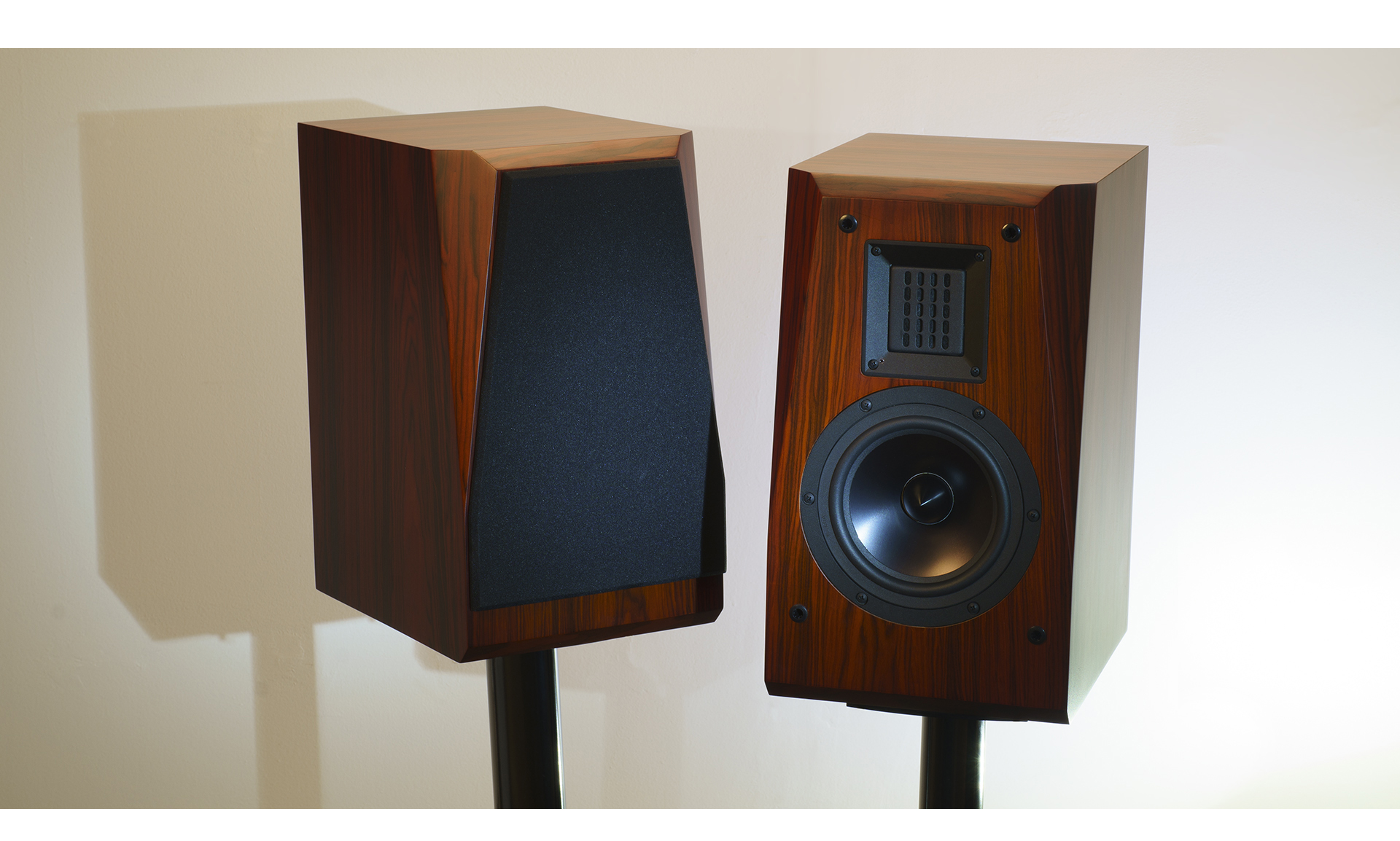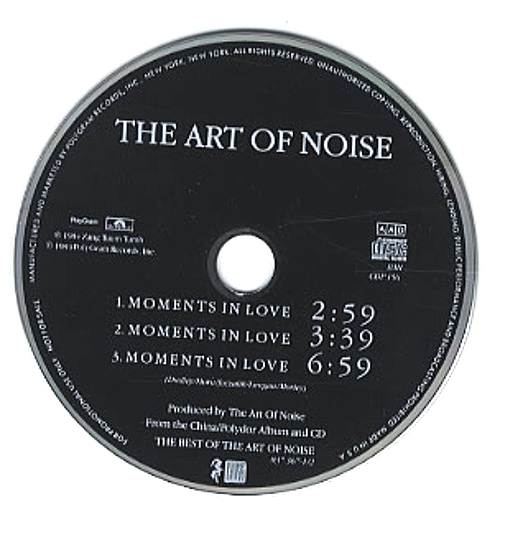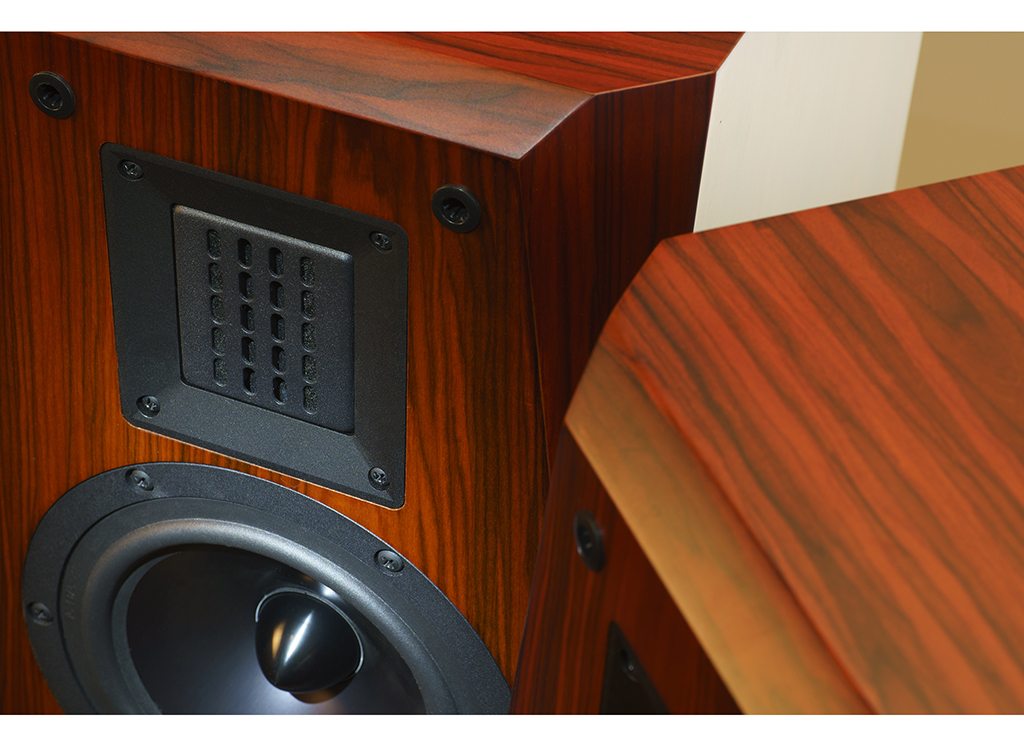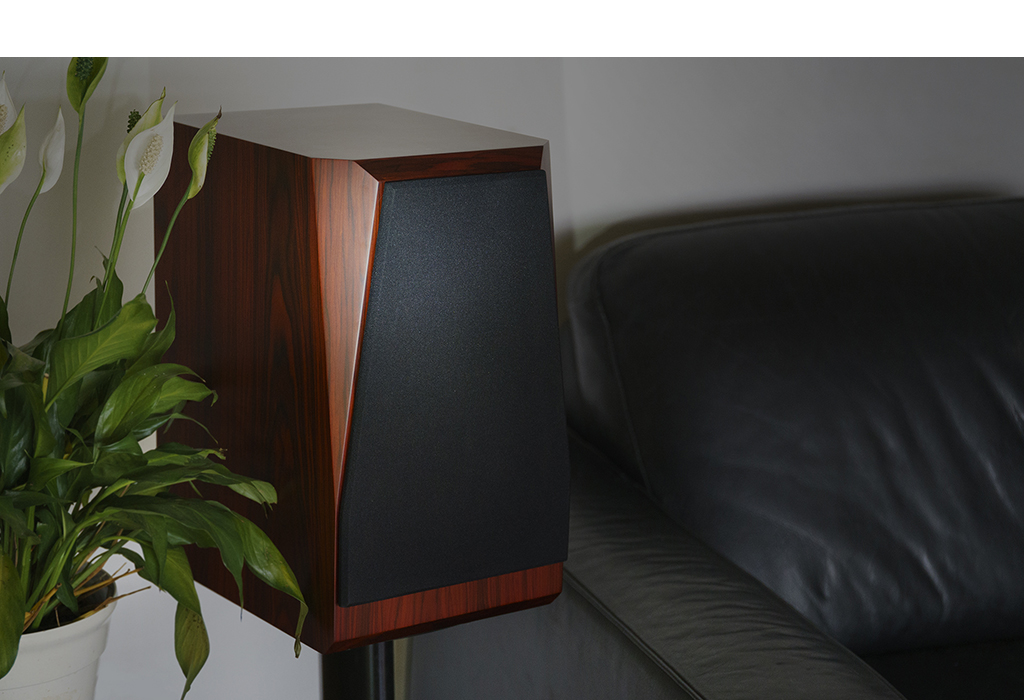REVIEW: The LSA Signature 80 Speakers
 As mentioned in our TONE/Distilled review, the first track played on the LSA Signature 80s is The Art of Noise’s “Moments in Love.” Immediately, the deep bass groove on this track is in full effect, and this is not a wimpy presentation.
As mentioned in our TONE/Distilled review, the first track played on the LSA Signature 80s is The Art of Noise’s “Moments in Love.” Immediately, the deep bass groove on this track is in full effect, and this is not a wimpy presentation.
While electronic music doesn’t give a listener an absolute sonic reference the way a track of a string quartet does, this music offers up a massive soundfield, with many sonic tidbits in all three dimensions. A mediocre speaker presents this music in a benign way, lacking an immersive quality. Space and dynamics are the third and fourth dimension of music to me, and the Signature 80s pass the initial “are these cool enough to investigate further” test with ease.
 There’s a reason that everything I hear isn’t “mindblowing,” and the new Signature 80 from LSA is the perfect example. Great as their $599/pair Signature 50s are (and they deliver a lot of music for the money) the 80s deliver more. Legitimate products should deliver more performance as you go up the range, and the LSA Signature 80s do not disappoint. There is a twist however – where the Signature 50 uses a soft-dome tweeter and is voiced slightly more on the warm/saturated/lush side of neutral, the Signature 80s are more resolving, more dynamic, and go down deeper. In short for $1,299/pair, you get a speaker that can deliver more musical information than the model beneath it. Bravo.
There’s a reason that everything I hear isn’t “mindblowing,” and the new Signature 80 from LSA is the perfect example. Great as their $599/pair Signature 50s are (and they deliver a lot of music for the money) the 80s deliver more. Legitimate products should deliver more performance as you go up the range, and the LSA Signature 80s do not disappoint. There is a twist however – where the Signature 50 uses a soft-dome tweeter and is voiced slightly more on the warm/saturated/lush side of neutral, the Signature 80s are more resolving, more dynamic, and go down deeper. In short for $1,299/pair, you get a speaker that can deliver more musical information than the model beneath it. Bravo.
Retaining the 86dB/1-Watt sensitivity of the Signature 50, the Signature 80 swaps the soft dome tweeter and paper cone woofer for a metal coned woofer and a planar tweeter. Who knows, more resolution or not, you may even prefer the Signature 50. If so, more money for beer, records, or maybe a haircut? Bottom line, LSA has delivered yet another compact speaker (15.75” H x 9.1” W x 12” D) delivering exceptional performance at a relatively modest price.
Easy to set up
Sitting on a pair of sand filled 20” Sound Anchor stands gives the Signature 80s the perfect ear alignment in my listening chair. The relatively small panel area of the planar tweeter demands that you spend a little extra time getting the speaker height and rake angle on the money for best results. Depending on your listening position, you may find the best results with stands between 18 and 24 inches.
Planar drivers offer a level of transparency that many cone and dome drivers do not, but with physics (and ex-wives) everything has a cost. The tweeter in the Signature 80 is very resolving, and offers a high degree of horizontal dispersion, but vertical dispersion is somewhat limited. Once you’ve optimized the Signature 80s in your room for solid bass and a smooth bass to midrange transition, slowly raise and lower your head to find the spot where you hear the most high-frequency extension. That’s the magic spot. Adjust speaker rake angle to maximize this position, and you’re set.
Potential suitors
One of the most interesting changes between the 50 Signature and the 80 Signature is the 10-ohm impedance – making these speakers incredibly tube amp friendly. While we had excellent luck with solid-state and tube amplification, these speakers are particularly engaging with tubes. Don’t be discouraged by a somewhat low sensitivity spec – these speakers are super easy to drive.
After using a wide range of amplifiers in our listening, most was done with LSA’s VT-70 (EL34) tube amp and my Rega Brio. Depending on which sonic signature you prefer either of these amplifiers are very affordable and will make the cornerstone of a high-performance system that is approachable for a wide range of music lovers. Digital source was our OPPO 105, and a Technics SL-1600/Ortofon 2M Red rounded out the analog side. All cabling was Tellurium Q Black II. All in, this made for a system that plays analog and digital for under $5k.
Where LSA’s Signature 50s pay a bit of an homage to the Sonus faber look, with their more organic shape and leather front panel, the Signature 80s are more angular, looking like the shape that Avalon made famous. They come in a beautiful Rosewood, matte lacquer finish. Again, at this price point, not offering a range of finish choices keeps the cost down and the performance up.
Further listening
Thanks to solid bass performance, the Signature 80 feels like a bigger speaker than it is. It’s amazing how far today’s technology has come, allowing speakers this size to deliver this level of sonics.
Rather than bore you with a long list of tracks that you don’t know or don’t like, let’s break it down somewhat. Integrating a planar or ribbon tweeter is always a tough job, yet the team at LSA succeeds brilliantly, resulting in natural midrange. Much of this has to do with careful crossover design, and there is a photo comparing a Signature 80 crossover to that of a big industry favorite, the KEF LS50. As you can see, the LSA crossover is far more robust. There’s nowhere to hide when it comes to this kind of thing. Every additional $20 spent here makes for a substantial jump in the final product.
Tracking through our workhorse cuts from Joni Mitchell, Ella Fitzgerald, Billie Eilish and Johnny Cash is incredibly satisfying. The Signature 80s can deliver more than enough resolution to get a solid sense of presence and body. Highs are smooth and extended without sizzle, or feeling tipped up – cymbals sound as they should, and along with percussion, there is a decent amount of airiness. Bass response is equally impressive. The Signature 80s deliver enough grunt and fundamental low-frequency information to deliver the goods. Whether you are delving full bore into your favorite electronica, rock or hip-hop tracks all but the heaviest bass heads will be happy. And of course you can always add a sub. Pairing the Signature 80s with the $899 SVS SB-3000 mini subwoofer adds a lot of grunt and still keeps the budget reasonable. Again, we’re just exploring reasonably priced possibilities – don’t think you need a sub to enjoy the Signature 80s. The smaller your room is, the less likely you will, however as you go to a smaller room, more careful speaker placement will be required to nail the balance between low-frequency output and midrange/mid-bass smoothness. But you can do it.

Thanks to that planar tweeter we’ve been talking about, these small speakers create a very wide stereo image. Part of this will depend on the quality of your source components, the other part on your setup skills. The Signature 80s sound good just thrown in the room, yet an hour or so spent on careful fine tuning will yield very worthwhile results. As your listening skills improve, you may find that your Signature 80s have still more to give, and that’s a good thing.
Finally, the Signature 80s can play loud without distortion, giving them a more dynamic presentation than several other small speakers we’ve heard. Often, music lovers forget about dynamics as the fourth dimension, and this is why so many small speakers sound so small. Even when connected to our big Pass XA200.8 monoblocks, it is impressive how loud these speakers can play before distortion sets in. This makes for fatigue free listening, and a speaker that you can listen to all day without becoming tired or bored.
Listener friendly, room friendly and wallet friendly
This is the point in the “conclusion” that we’re supposed to tell you that these speakers eclipse anything for ten grand. Sorry, that’s not happening. It’s more important to hear what a big part of the musical spectrum these little speakers get right in a direct comparison to a few speakers on hand in the 10-20k range. Really right.
The $1,000 – $2,500 speaker market is probably one of the most highly competitive segments going. The LSA Signature 80 belongs in the top tier of this group. Rather than concentrating on blowing you away with one optimized aspect of the frequency range, the LSA team brings you a well-balanced speaker, that you can actually live with.
It’s hard for companies like KEF, Elac and such to put as much forward in this area of high-end audio, because everyone needs to get their piece of the pie. For those of you looking for the maximum value, it’s tough to beat a company like LSA, because there is no importer, distributor and dealer in the chain. Comparing the Signature 80 to the KEF LS-50 and the ELAC Uni-Fi, the Signature 80s not only reveal more music, they are much easier to drive.
Highly recommended.




